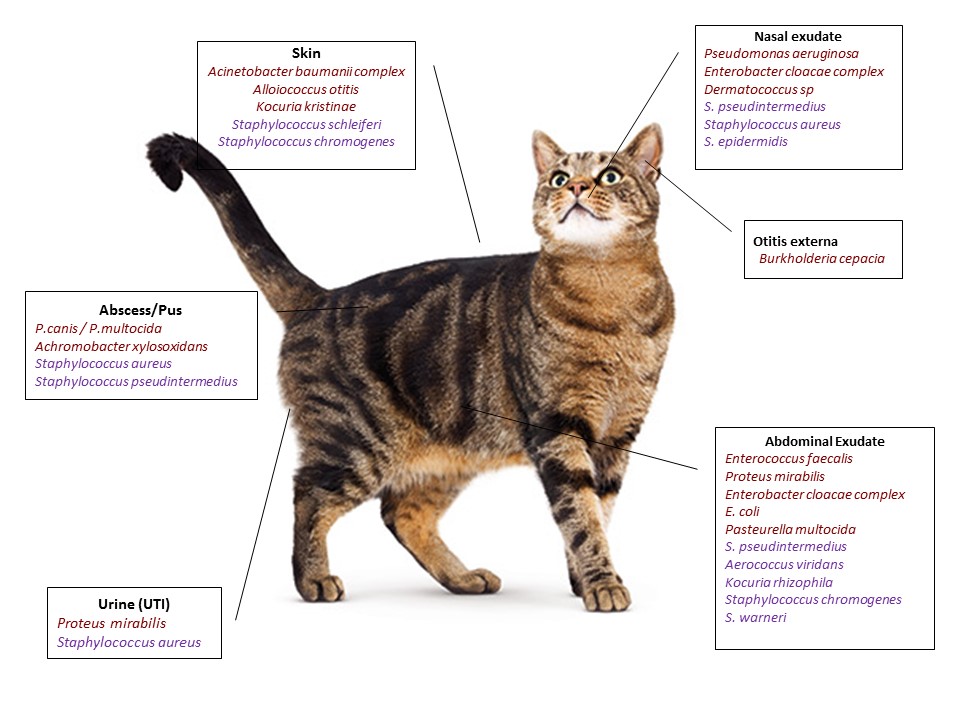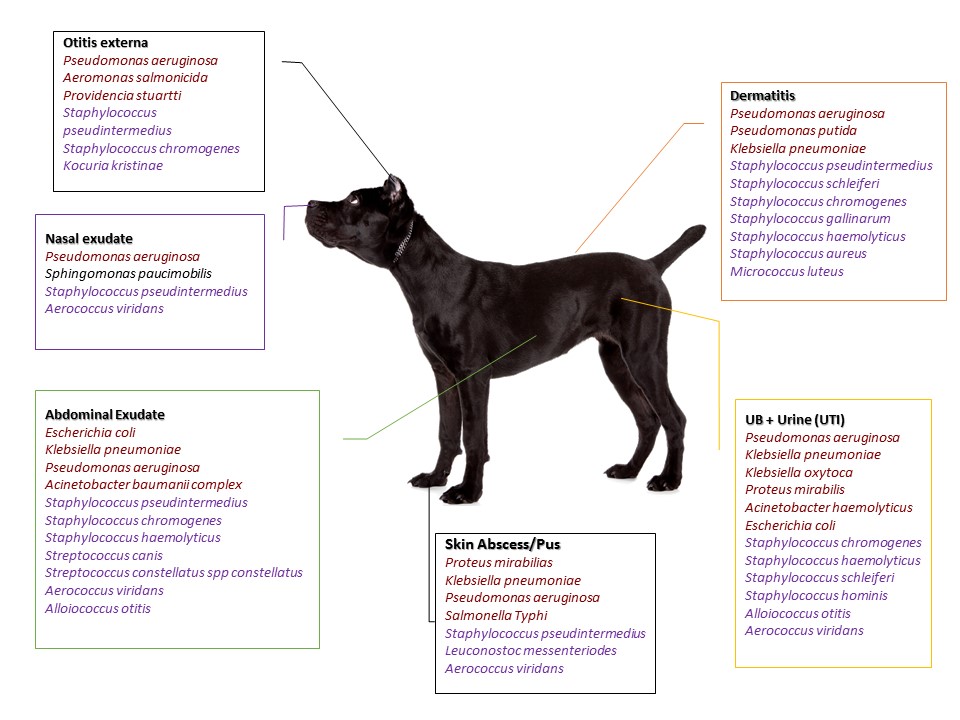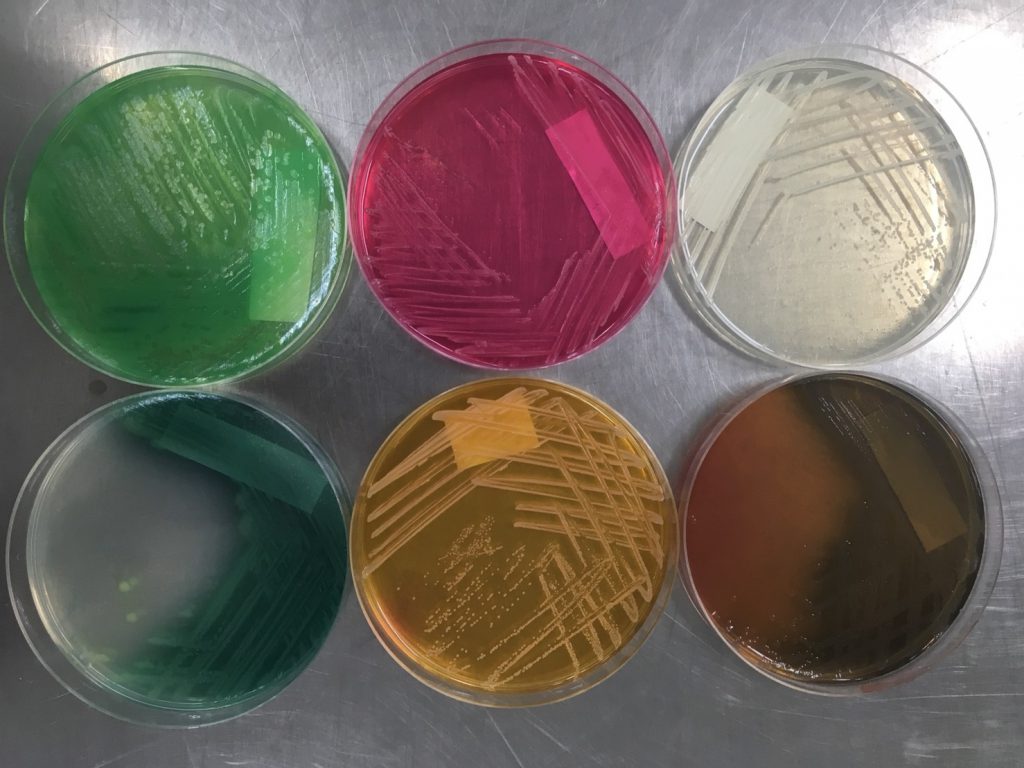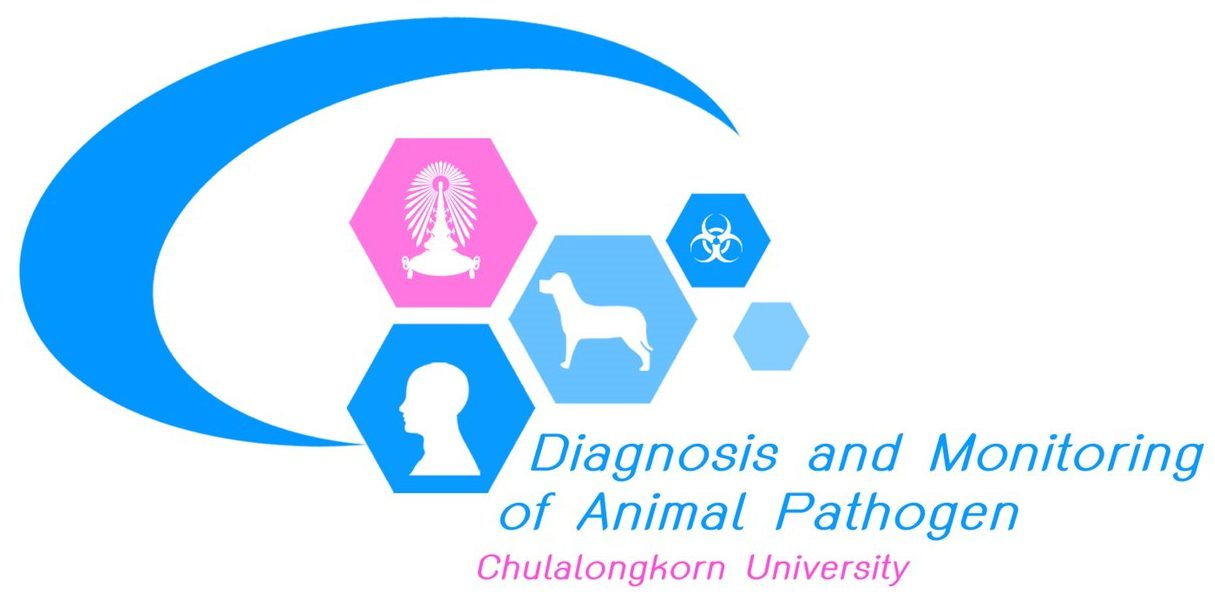

Incidences of animal and zoonotic pathogens, including viruses, bacteria and fungi have been reported increasingly. To support clinical practice, diagnostic service of the Faculty of Veterinary Science, Chulalongkorn University has provided diagnosis and identification of various pathogens in animals at both genus and species levels, such as
- Escherichia coli
- Streptococcus spp.
- Staphylococcus spp.
- Canine infectious respiratory disease complex (CIRDC) viruses including
- Canine parainfluenza virus (CPIV)
- Canine influenza virus (CIV)
- Canine respiratory coronavirus (CRCoV)
- Canine adenovirus type 2 (CAdV-2)
- Canine herpesvirus type 1 (CaHV-1) and
- Canine distemper virus (CDV)
- Important feline viruses including
- Feline parvovirus (FPV)
- Feline coronavirus (FCoV)
- Feline immunodeficiency virus (FIV) and
- Feline leukaemia virus (FeLV)
In addition, identification of zoonotic transmissions by serotyping, virulence typing, antimicrobial resistance profiling and genetic characterization is required to define the link between veterinary and medical pathogens.

Although in-clinic test kits are commonly used for the diagnosis of infectious diseases in veterinary practice, laboratory confirmation is still needed to specify the infectious agents, especially in persistent and latent infections. Diagnosis and monitoring of Animal Pathogen Research Unit aim to develop laboratory diagnostic tools for the confirmation and characterization of the causative agents, which are beneficial for both clinical management and disease control by using of strain-matched vaccines. Since 2012, with supports from research grants for the study of animal and zoonotic pathogens, our group has provided information and contributed standard tests for the diagnostic service. We also established an automated bacterial identification and antimicrobial susceptibility testing platform to support the diagnosis and rational antimicrobial use in small animal practices. Our research also focused on the monitoring of antimicrobial-resistant bacteria in animals. We are currently expanding our mission to include important viruses of small animals such as FIPV, FeLV, FIV and viruses of CIRDC.

Sharing the same interest, faculty staffs with expertise in infectious diseases of animals and development of diagnostic assays have gathered together and formed the Diagnosis and Monitoring of Animal Pathogen Research Unit (DMAP-RU) to tackle the aforementioned issues. The DMAP-RU is established to integrate researches with clinical application to provide diagnostic services for veterinary practices and to become a reference centre for small animal infectious diseases.

